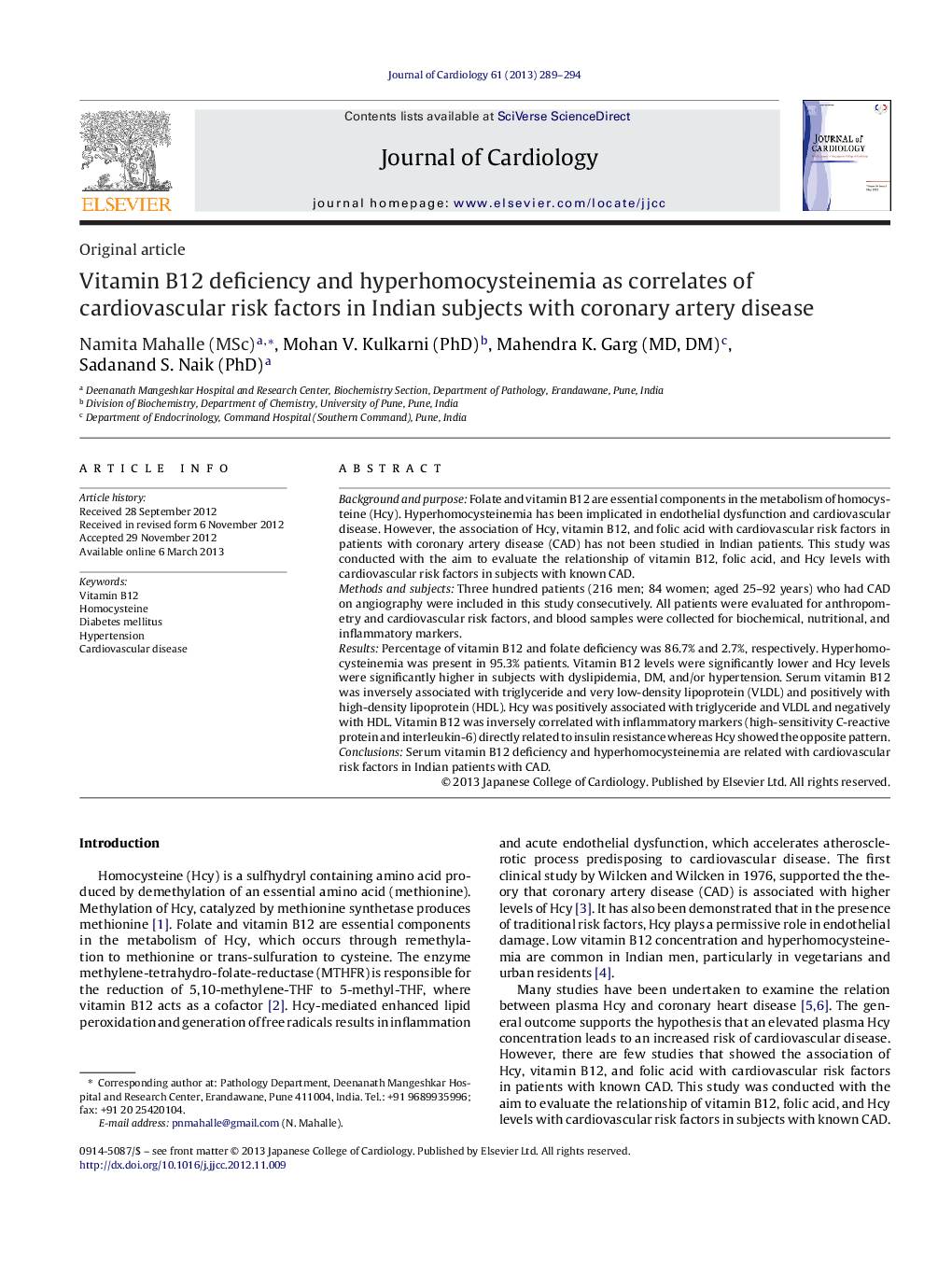| Article ID | Journal | Published Year | Pages | File Type |
|---|---|---|---|---|
| 5984178 | Journal of Cardiology | 2013 | 6 Pages |
Background and purposeFolate and vitamin B12 are essential components in the metabolism of homocysteine (Hcy). Hyperhomocysteinemia has been implicated in endothelial dysfunction and cardiovascular disease. However, the association of Hcy, vitamin B12, and folic acid with cardiovascular risk factors in patients with coronary artery disease (CAD) has not been studied in Indian patients. This study was conducted with the aim to evaluate the relationship of vitamin B12, folic acid, and Hcy levels with cardiovascular risk factors in subjects with known CAD.Methods and subjectsThree hundred patients (216 men; 84 women; aged 25-92 years) who had CAD on angiography were included in this study consecutively. All patients were evaluated for anthropometry and cardiovascular risk factors, and blood samples were collected for biochemical, nutritional, and inflammatory markers.ResultsPercentage of vitamin B12 and folate deficiency was 86.7% and 2.7%, respectively. Hyperhomocysteinemia was present in 95.3% patients. Vitamin B12 levels were significantly lower and Hcy levels were significantly higher in subjects with dyslipidemia, DM, and/or hypertension. Serum vitamin B12 was inversely associated with triglyceride and very low-density lipoprotein (VLDL) and positively with high-density lipoprotein (HDL). Hcy was positively associated with triglyceride and VLDL and negatively with HDL. Vitamin B12 was inversely correlated with inflammatory markers (high-sensitivity C-reactive protein and interleukin-6) directly related to insulin resistance whereas Hcy showed the opposite pattern.ConclusionsSerum vitamin B12 deficiency and hyperhomocysteinemia are related with cardiovascular risk factors in Indian patients with CAD.
